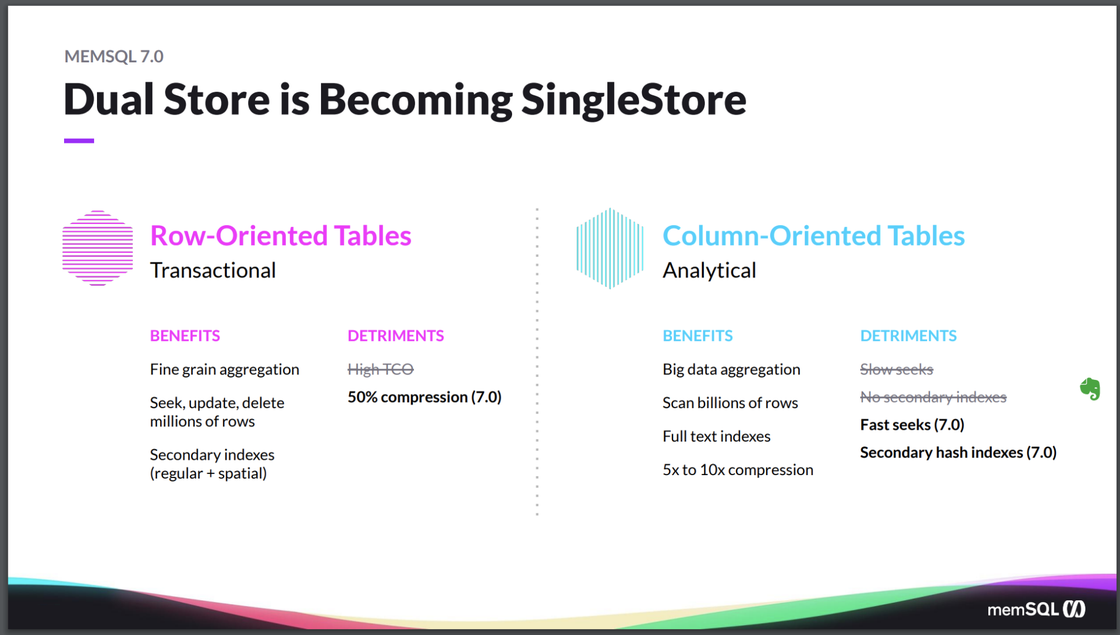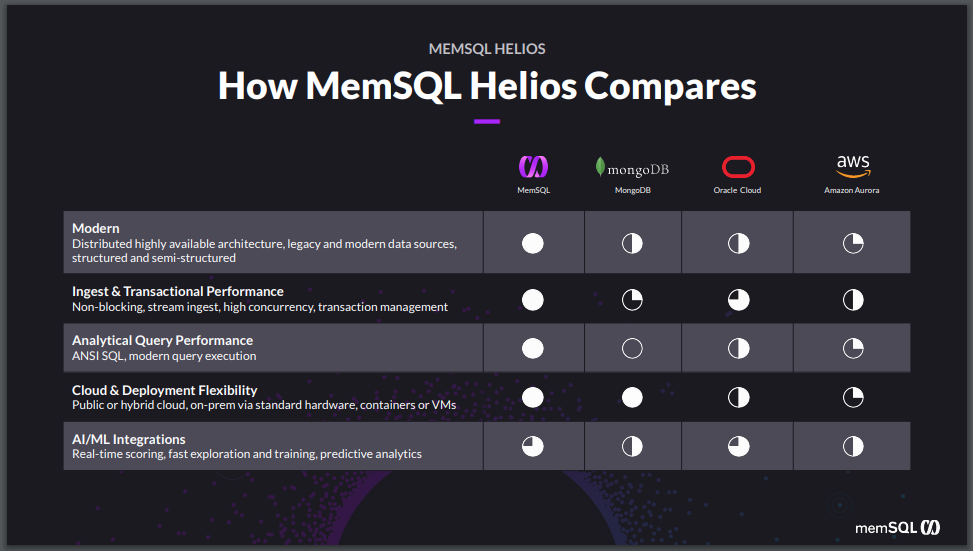
As interest in SingleStore increases, we get many questions about how SingleStore works, how to get started with it, and more. Performance reviews website G2.com has a SingleStore Q&A section where potential customers can ask questions. Here are some of the questions we hear most often – with answers – lightly edited, for context and clarity.
Q. What is the advantage of SingleStore over other distributed databases?
A. Compared to relational databases – those which support SQL – we believe that SingleStore is the fastest, most efficient SQL database. SingleStore features full, linear scalability, unlike competitors. We also handle both transactions and analytics in one database, as described by customers in the reviews on G2.com.
Compared to NoSQL, SingleStore is at least as scalable, far more efficient with machine resources, and of course, unlike NoSQL databases, we have full ANSI SQL support. SingleStore also supports data types, such as JSON and geospatial data, that may otherwise only be supported by NoSQL databases.
Q. How to simplify scaling of a SingleStore cluster? We would like our microservices to use-in memory processing and storage for analytics purposes.
A. This question does seem particularly pertinent to microservices, as you are more likely to have multiple data stores. There are several parts to the answer:
- This tutorial describes how to scale your cluster for optimal performance.
- You can use Kubernetes, specifically the SingleStore Kubernetes Operator, to scale clusters flexibly.
- With Singlestore Helios, our elastic managed service in the cloud, you simply send a request, and SingleStore will quickly rescale the cluster for you.
- For more specifics, please use the SingleStore Forums to give a more detailed description and get a more detailed answer – or file a support ticket, if you have an Enterprise license.
- Alternatively, contact SingleStore directly for more in-depth information.
Q. Is SingleStore a row-based or column-based store?
A. We are happy to report that the answer is: Yes. SingleStore supports both rowstore and columnstore tables in the same database (or separate databases), with the ability to efficiently run JOINs and other SQL operations across both table types. We also support new capabilities, under the umbrella of SingleStore Universal Storage, which will gradually unify the two table types for most workloads; see the description of Universal Storage-related changes in SingleStoreDB Self-Managed 7.0, below. And see the SingleStore review comments on G2.com for more information about rowstore and columnstore tables, and also contact SingleStore directly.

Q. What is the relationship between SingleStore and MySQL?
A. SingleStore and MySQL are both ANSI SQL-compliant, so the same queries work on both – as is, or with minor changes. In addition, SingleStore directly supports the MySQL wire protocol for connectivity.
Q. What versions of SingleStore are available?
A. The current version, SingleStoreDB Self-Managed 7.0, is the only version available. SingleStoreDB Self-Managed 7.0 is available for (free) download and is also the version that powers Singlestore Helios, our on-demand, elastic, managed service in the cloud. (Singlestore Helios is compared to other cloud databases in the table below.) Some existing SingleStore customers are still running older versions, as is typical with infrastructure software.

Q. Where can I go for help if I do not have access to paid support?
A. Please visit the SingleStore Forums.
Q. How can I get a copy of SingleStore?
A. You can use SingleStore for free. You can download a fully capable version of SingleStoreDB Self-Managed for use on your on-premises servers or in the cloud. This comes with community support and has fairly liberal capacity constraints. Alternatively, you can get a free 8-hour trial of Singlestore Helios, our elastic managed service in the cloud. Or, contact SingleStore to discuss using SingleStore for a proof of concept enterprise.





